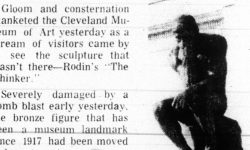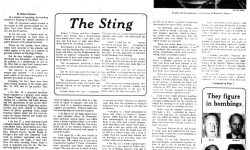Here’s What the Original Main Library of Cleveland Public Library Looked Like before 1925

In 1924, when this photograph was taken, Main Library was located on the fifth and sixth floors of the Kinney & Levan Building on Euclid Avenue at East 14th Street. The building, built in 1913, was home to the Kinney & Levan Co., which was one of the largest home furnishings stores of its time; today it is occupied by the Idea Center at Playhouse…




